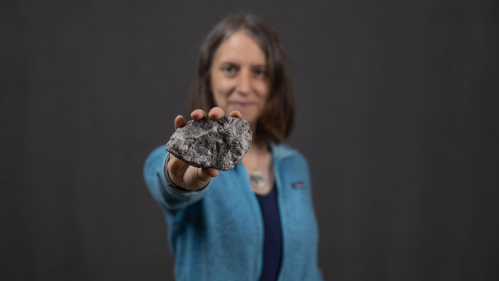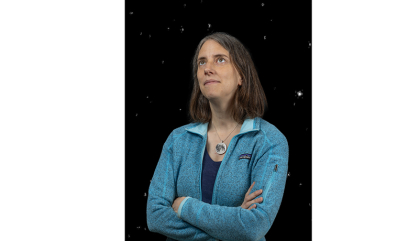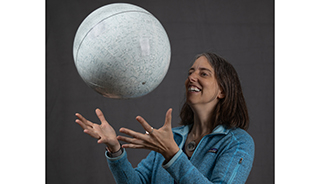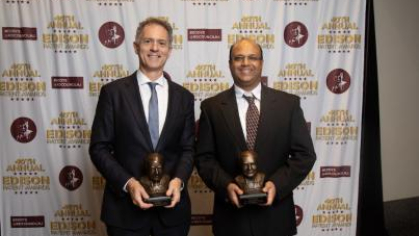NASA Picks Rutgers Scientist to Assist on First Crewed Lunar Landing Mission in Over 50 Years

Member of geology team for Artemis III mission says she can’t wait to start
NASA has selected Juliane Gross, a NASA Early Career Fellow and a Rutgers professor, to be a member of the geology team supporting the Artemis III mission, the first crewed lunar landing mission in more than 50 years.
Gross, an associate professor in the Department of Earth and Planetary Sciences at the Rutgers School of Arts and Sciences, discussed her excitement in participating in a mission as a member of the geology team that will land the first woman on the Moon and explore more of the lunar surface than ever before.
NASA has announced that the geology team for Artemis III will develop the surface science plan for the mission. What is a surface science plan?
The geology team is representing the lunar science community in the Artemis III mission and will be incorporated into the NASA Artemis Internal Science Team. As one big team, we will plan the areas to be explored within the South Polar region of the Moon, map out the paths the astronauts will take on the surface and determine the science activities they will carry out.

We want to maximize the knowledge gathered so we can grow our understanding of our Moon, the Earth-Moon system and the evolution of planetary bodies through space and time. We can’t wait to get started.
Why is NASA focused on geology in this mission?
Geology is the field that connects many sciences. The geology of the Moon is intimately tied to the formation of Earth and its history. That’s important because much of the geological history of Earth has been destroyed – our planet is incredibly active and recycles itself repeatedly through forces such as weather and plate tectonics.
The Moon, in contrast, is frozen in time. Its rocks are like history books. Moon rocks have preserved evidence of so much: the origin of Earth; the early geological evolution of terrestrial planets; our solar system’s climate history and changes in planetary positions. As geologists, we need to learn how to read these history “rock books.” We will collect some of the Moon’s oldest rocks with Artemis III to understand fundamental processes and learn, for future explorations, where to find critical resources.
How will your research background help and what answers do you hope to find by engaging in this endeavor?
I’m a petrologist/mineralogist – a person whose specialty is to “read the rocks” and extract their stories. My research focuses on investigating how planetary bodies, such as the Moon, formed and evolved.

Because I study the chemistry and mineralogy of lunar samples, I’m helping to ensure the astronauts return with the best samples to learn from. There are many mysteries to be solved: how the Moon formed; how impacts on the Moon affected it and Earth; what produced water/ice on the Moon; and how long the Moon has been volcanically active. These are exciting times.
In addition, due to my experience as the Deputy Apollo Sample Curator at NASA’s Johnson Space Center from 2019 to 2022 – when we examined one of the last unopened Apollo-era lunar samples – I understand curation protocols. This has to do with the proper collection and examination of samples. We want future generations of lunar scientists to be able to extract information from what is collected on the Artemis III mission 50 years from now.
Why is the Artemis III mission important for everyone, not just geologists?
Artemis III will mark humanity’s first return to the lunar surface in more than 50 years. NASA will send the first woman and the first person of color to explore the region near the lunar South Pole, a region where humans haven’t been before.
By going back to the Moon, we will be able to retrieve samples to expand knowledge, learn how to operate and work on another planet independently. We will gain experience in conducting short interplanetary trips. This will provide invaluable preparation for venturing to places like Mars.
The Artemis missions are important not just for geologists like me, but for artists, engineers, space explorers and teachers and many others. We will need all sorts of people and professions to make this mission successful. Artemis will spark new technologies needed for future space exploration, much the way that previous space missions benefited everyone on Earth with innovations they produced. In that sense Artemis III will be incredibly inspirational on all sorts of levels. Part of me still can't believe that I will get to be part of that.


